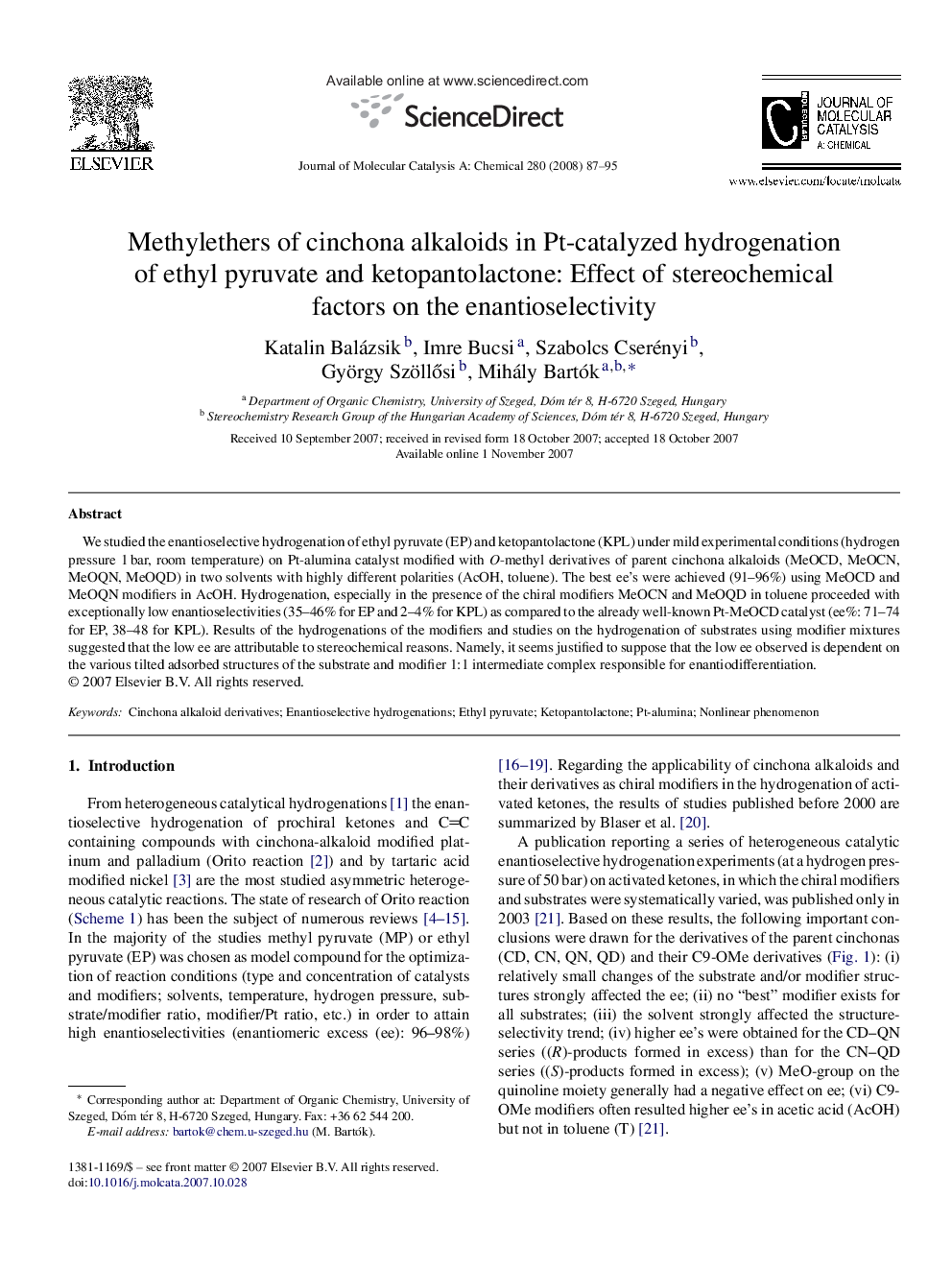| Article ID | Journal | Published Year | Pages | File Type |
|---|---|---|---|---|
| 68518 | Journal of Molecular Catalysis A: Chemical | 2008 | 9 Pages |
We studied the enantioselective hydrogenation of ethyl pyruvate (EP) and ketopantolactone (KPL) under mild experimental conditions (hydrogen pressure 1 bar, room temperature) on Pt-alumina catalyst modified with O-methyl derivatives of parent cinchona alkaloids (MeOCD, MeOCN, MeOQN, MeOQD) in two solvents with highly different polarities (AcOH, toluene). The best ee's were achieved (91–96%) using MeOCD and MeOQN modifiers in AcOH. Hydrogenation, especially in the presence of the chiral modifiers MeOCN and MeOQD in toluene proceeded with exceptionally low enantioselectivities (35–46% for EP and 2–4% for KPL) as compared to the already well-known Pt-MeOCD catalyst (ee%: 71–74 for EP, 38–48 for KPL). Results of the hydrogenations of the modifiers and studies on the hydrogenation of substrates using modifier mixtures suggested that the low ee are attributable to stereochemical reasons. Namely, it seems justified to suppose that the low ee observed is dependent on the various tilted adsorbed structures of the substrate and modifier 1:1 intermediate complex responsible for enantiodifferentiation.
Graphical abstractAccording to the new experimental data, it may be supposed that a two-point binding between reactant and chiral modifier is a prerequisite of the formation of the substrate–modifier 1:1 intermediate complex on platinum surface which is responsible for high ee's.Figure optionsDownload full-size imageDownload as PowerPoint slide
